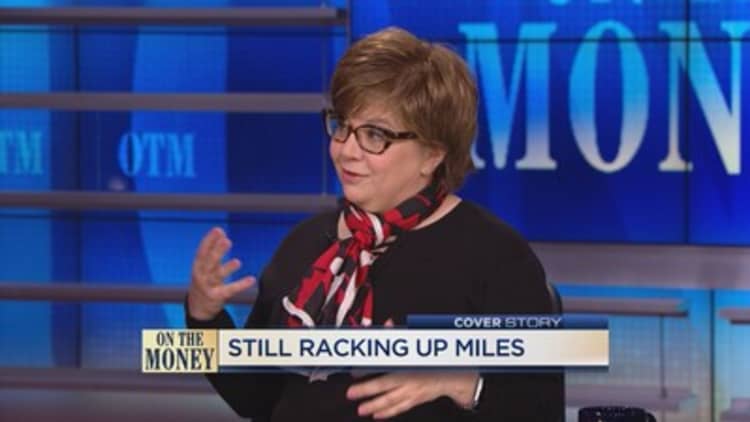
There are a lot of old "road warriors" traveling this Memorial Day weekend. That's because the average age of vehicles in the U.S. is a record 11.6 years, according to one recent study.
That's not entirely a bad news story. The IHS Markit study showed that vehicles are being made with better quality nowadays, leading consumers to own them longer. According to IHS, the average length of ownership was a record 79.3 months, or nearly seven years.
Still, "people are basically driving around in a rotary phone," joked Rebecca Lindland, executive analyst at Kelley Blue Book, in an interview with CNBC's "On The Money."
Although the IHS report cited vehicle quality, Lindland insisted that one of her "biggest concerns about having such old vehicles on the road today is just the safety factor. There's a lot of vehicles that only have one air bag, if they have one at all."
Some drivers might be using the holiday weekend as an opportunity to head to the nearest dealership, looking to replace their older models. They'll be greeted by a wide range of cars, trucks and SUVs with state-of-the art technology. Lindland highlighted auto upgrades including lane control, adaptive cruise control and even baby seat connectors.
The pitfalls of financing
However, along with those new features comes higher sticker prices.
Kelley Blue Book cites the average price of a vehicle as $34,342. While a compact SUV averages $28,395, a full-size pickup runs $45,252 and a full-size SUV is priced at $60,670 on average.
Lindland said that in order to pay for those new vehicles, more buyers are taking out longer car loans. Some stretch out over six, seven or eight years, but Lindland suggested not signing for more than a five-year loan term.
"I'd never recommend going more than 60 months even if you have zero percent financing," she added.
That may be sound advice for some, with consumers increasingly buying cars with loans: Last year, Americans had accumulated just under $1.2 trillion in outstanding auto debt. According to Equifax and The Federal Reserve Bank of New York, that's up 9 percent from 2015.
Lindland says buyers should consider the overall cost of the vehicle, not just the monthly payment, given that a car is a depreciating asset. "What you're going to find is you're going to owe more on that vehicle than its worth for years to come," she said.
'More splintered than ever'
So who is buying new cars? According to J.D. Power data, the demographics are changing. Baby boomers, those born between 1946 and 1964, still made up 36 percent of new vehicle buyers, but that's down from 42 percent in 2011.
Meanwhile, Generation X – those born from roughly the mid-1960s to about 1980 — comprised about 25 percent of car buyers last year. The hotly coveted millennial generation purchased 29 percent.
"It's more splintered than ever. This is the first time baby boomers aren't completely dominating," Lindland told CNBC. And the way millennials buy is a little different than older buyers.
"They do spend a lot of time researching, and they find the overall process of purchasing very, very overwhelming," she added. Yet they're hardly alone in that view.
"It's completely understandable, Lindland laughed. "I do too."
"On the Money" airs on CNBC Saturday at 5:30 am ET, or check listings for air times in local markets.



